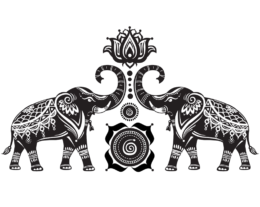Credit: UNSPLASH/CC0 Public Domain
They are the modern way to find love, according to 323 million people who use them worldwide, but dating apps are completing a passion with cosmetic surgery, which may not be a pleasant end.
A New study Researchers at the University of South Australia have highlighted how dating app female users are more likely to undergo cosmetic processes and are digitally replaced on the screen than non-user users.
Emphasis on appearance, especially with swipe-based apps, plays a role in affecting 20% women to change their looks through dermal filler and anti-rinkal injections.
Unisa Bachelor of Psychology (Honors) Bachelor, and provisional psychologist, Naomi Berkehart, who led the published study Computer in human behaviorIt is said that while the growing popularity of dating apps has reduced the stigma of using them to find love, there is a negative side.
“Visual nature of dating apps, which prefer photo-based profiles, puts significant pressure on users to present themselves in an ideal case, which is not real,” says Berkhart.
Researchers surveyed 308 Australian women between the ages of 18 to 72 and found that about half of them had used a dating app in the last two years and one of the five reported at least one cosmetic process. Was given
Women who used the dating app used to have a much more positive attitude towards cosmetic surgery than non-users and who had digitally changed their presence, were more likely to consider cosmetic procedures to consider cosmetic procedures. .
In addition to the pressures to increase physical appearance, dating apps may also be partially responsible for overall body dissatisfaction, food disorders, anxiety and increase in poor self -esteem in women.
Earlier studies have investigated the relationship between the use of social media in general and increasing acceptance of cosmetic surgery, but especially have very little data to look at dating apps.
Unisa co-author Lauren Conboy has suggested several interventions to address the psychological effects of dating apps, including facilities promoting authenticity.
“Introduction to more personality-based matching algorithms can also be considered to emphasize the physical form, and apps can offer the image intervention of the underlying body such as self-compassion practices to change someone’s presence to change the presence of someone To reduce it.”
Online dating has become increasingly popular in recent years and it is expected to continue the trend, predicting with the dating website Eharmony that by 2040, more than 70% of relationships will begin online.
An online lecturer in psychology, Unisa co-writer Dr. John Mingoya says that dating apps have the ability to create a healthy environment, where users can connect without the need to confirm unrealistic beauty standards.
“Hopefully this research can guide future studies to develop interventions to improve the authenticity of the use of dating app and at the same time to identify motivations for women to change their appearance. Support can support physicians, “Dr. Mingoia says.
More information:
Naomi Berkhart et al, swipe, style, surgery: Use of dating app, self-presentation style, and acceptance of cosmetic surgery, Computer in human behavior (2025). Doi: 10.1016/j.chb.2025.108568
Citation: Swipe, Style, Surgery: Why Dating Apps fuel on cosmetic procedures (2025, 21 February)
This document is subject to copyright. In addition to any impartial behavior for the purpose of private studies or research, no part can be re -introduced without written permission. The content is provided for information purposes only.
(Tagstotransite) Science (T) Physics News (T) Science News (T) Technology News (T) Physics (T) Material (T) Nanotech (T) Technology (T) Science



